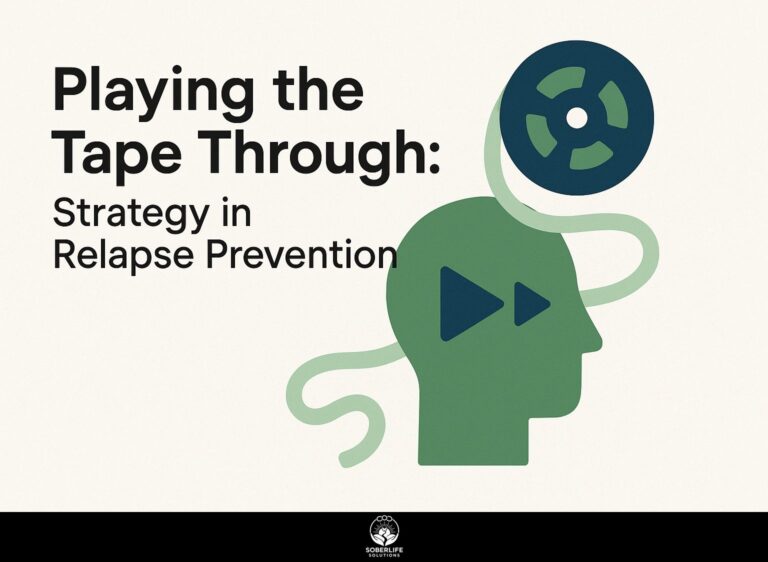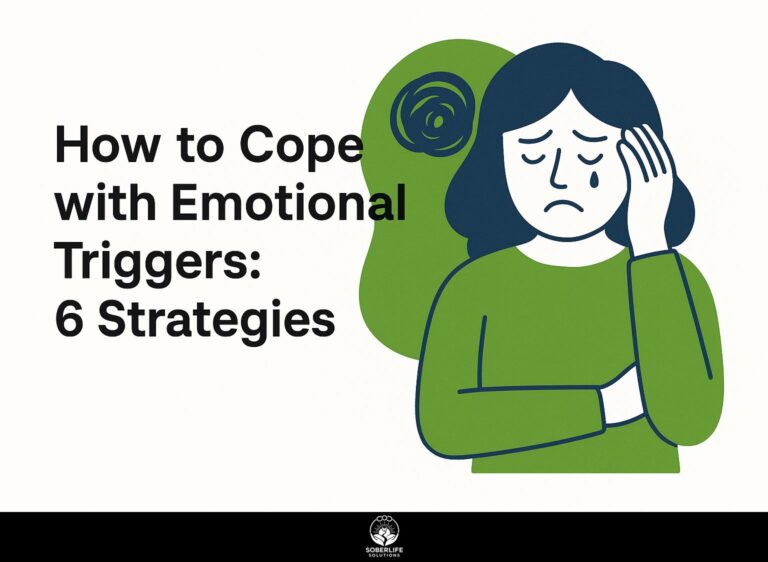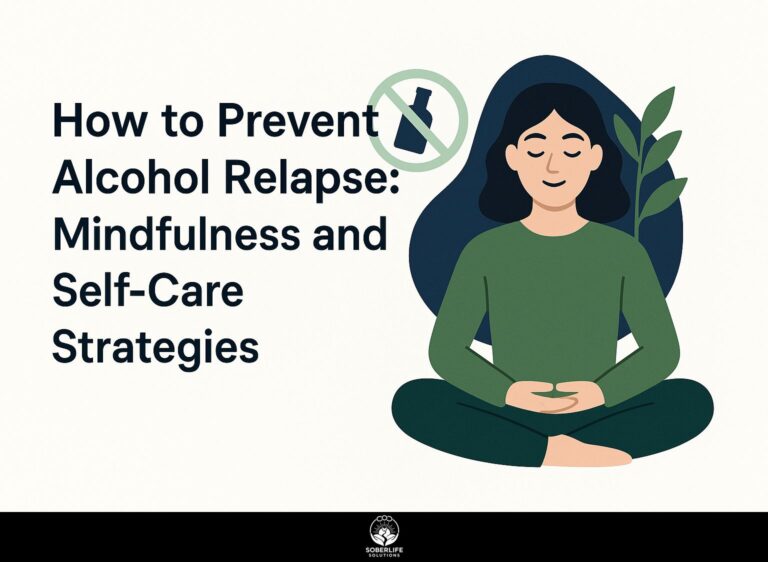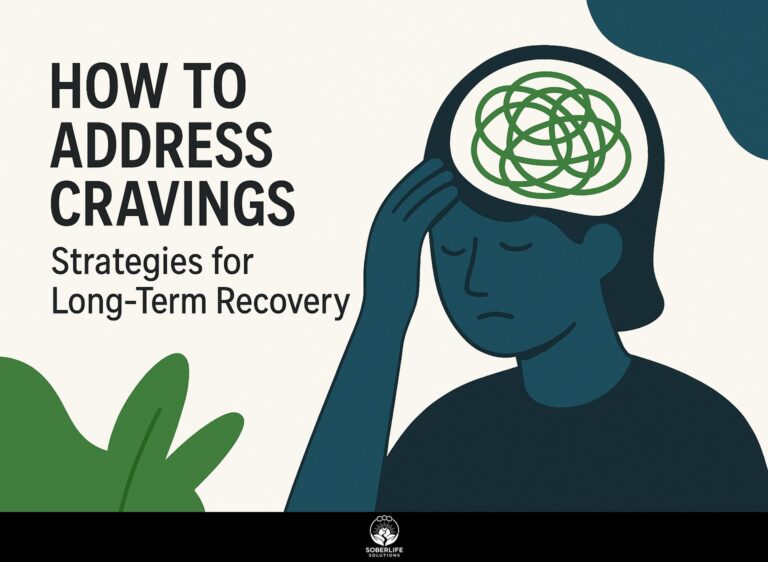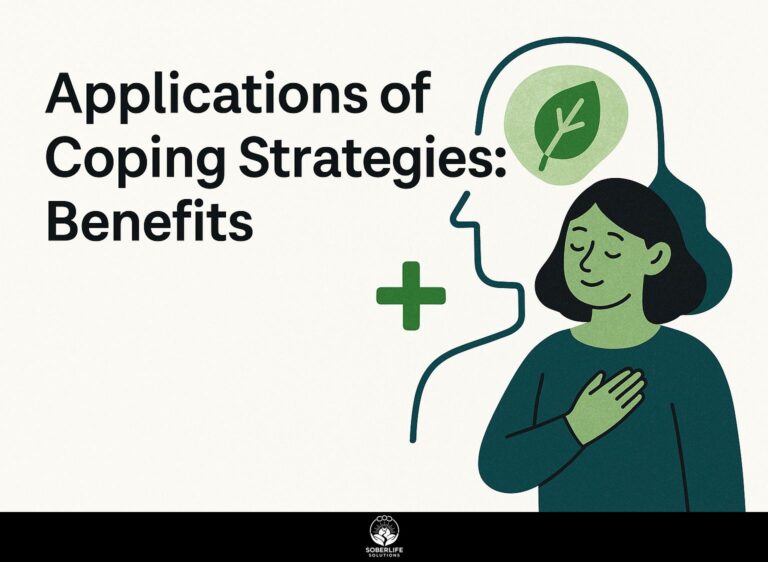Examples of Unhealthy Coping Skills: Management
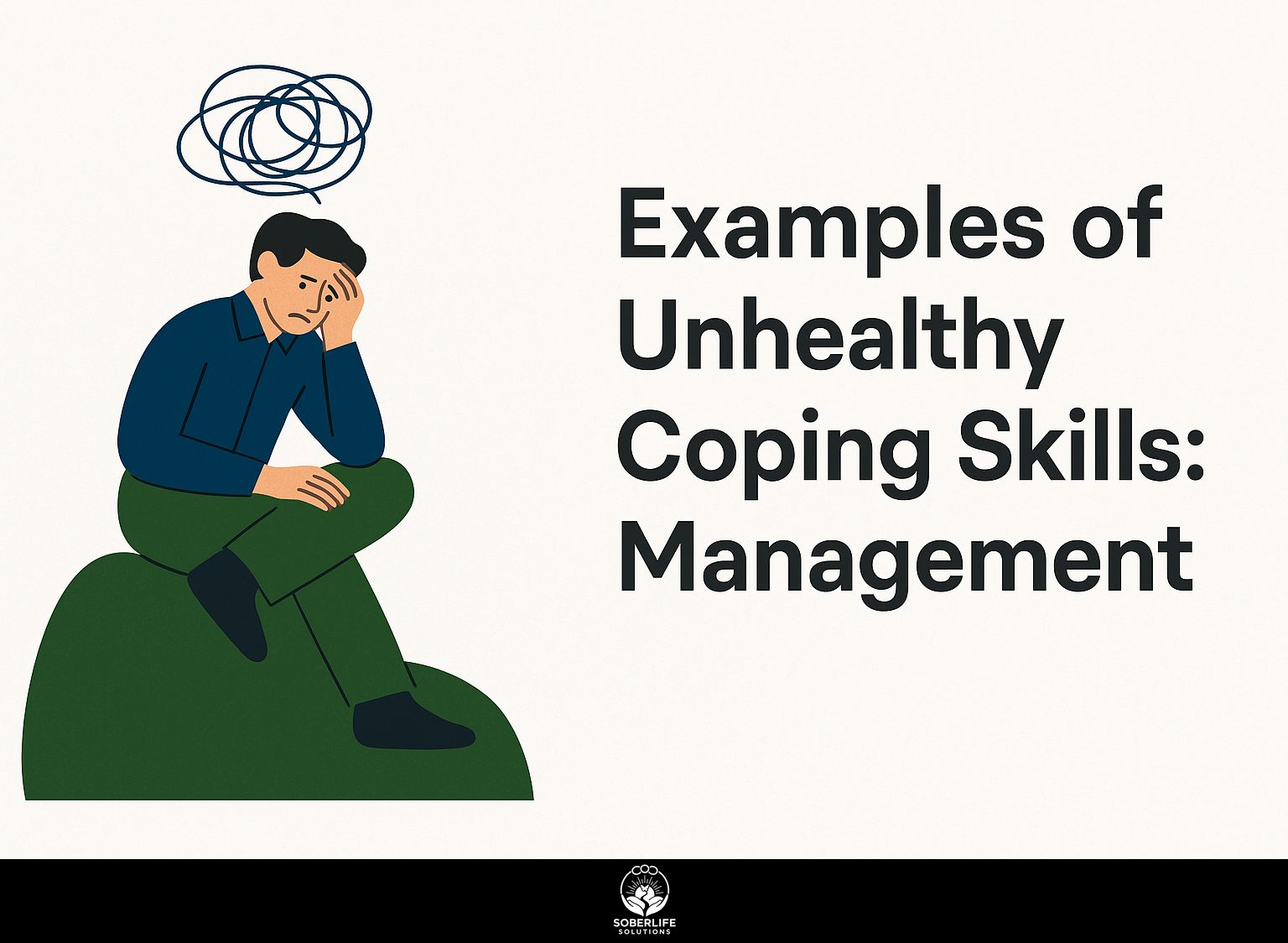
Bad coping skills can seriously hurt addiction recovery, so it’s important to notice and work on them. Many individuals facing difficult emotions often turn to poor choices, like substance abuse or overeating, as a way of managing stress. This article looks at examples of unhealthy ways people deal with problems and their effects while suggesting better options. By learning these patterns, you can create a path for managing stress and improving emotional health.
Key Takeaways:
Common Unhealthy Coping Mechanisms
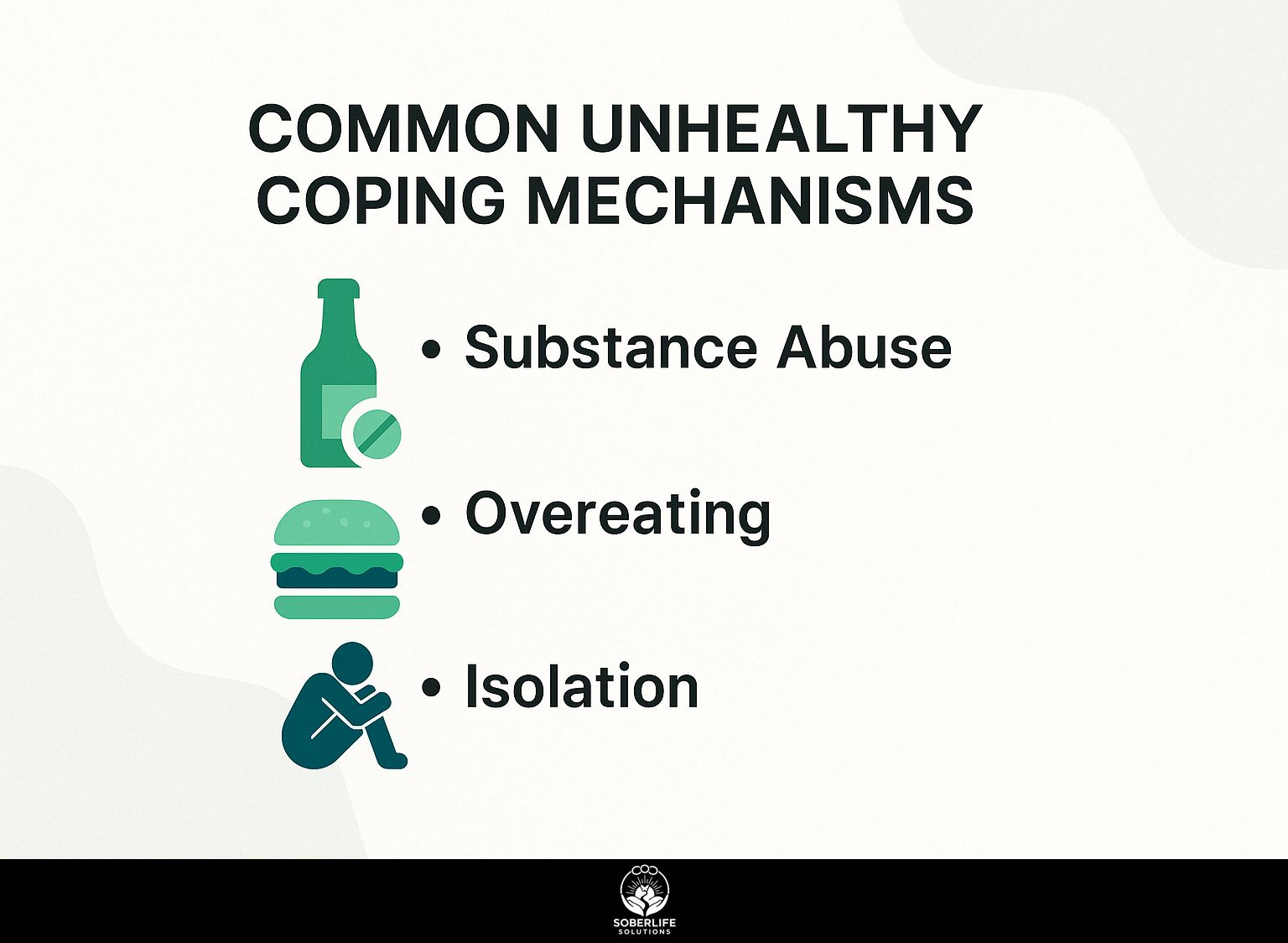
Knowing typical harmful habits allows individuals to recognize behaviors that could negatively affect their mental and physical well-being. As you become aware of these patterns, exploring food as emotional coping alternatives can provide healthier options for managing emotional stress.
Substance Abuse
Substance abuse, including alcohol and drugs, is a prevalent unhealthy coping mechanism that often exacerbates mental health issues like anxiety and depression.
In 2020, around 19.7 million Americans faced substance use challenges, as reported by SAMHSA, with many turning to substances to escape emotional distress.
For example, people who are grieving may drink too much alcohol to feel less hurt, while those under a lot of stress might turn to drugs that increase energy for short relief. Identifying these patterns is essential for successful intervention.
Encouraging healthy coping strategies, such as therapy, exercise, or support groups, can help individuals manage difficult emotions without succumbing to substance dependence.
Overeating
Overeating often serves as a temporary escape from emotional discomfort, with many people using food to manage stress or anxiety.
This habit can lead to serious health issues like obesity, diabetes, and heart disease. According to the American Psychological Association, around 70% of Americans report stress-related overeating.
To combat this, consider mindful eating practices, as suggested by an insightful piece from TIME that explores effective strategies for overcoming stress eating:
- Take time to savor your food.
- Keep a food journal to track emotional triggers.
- Try stress-reduction methods such as yoga or meditation.
These methods can help stop emotional eating and create a healthier connection with food over time.
Isolation
Isolation emerges as a common unhealthy coping mechanism where individuals withdraw from social interactions, often leading to increased feelings of loneliness and depression.
This cycle can lead to harmful behaviors like unhealthy eating, not getting enough physical activity, and using harmful substances. Notably, around 20% of adults report experiencing loneliness, according to the Cigna U.S. Loneliness Index, highlighting the pervasive nature of this issue.
To combat these feelings, engaging with support groups can be beneficial. Participating in local meetups or online forums centered on common interests helps you make friends and offers emotional support.
Consider platforms like Meetup or Facebook Groups to find relevant gatherings in your area, which can help break the isolation and promote healthier behaviors.
Impact of Unhealthy Coping Skills
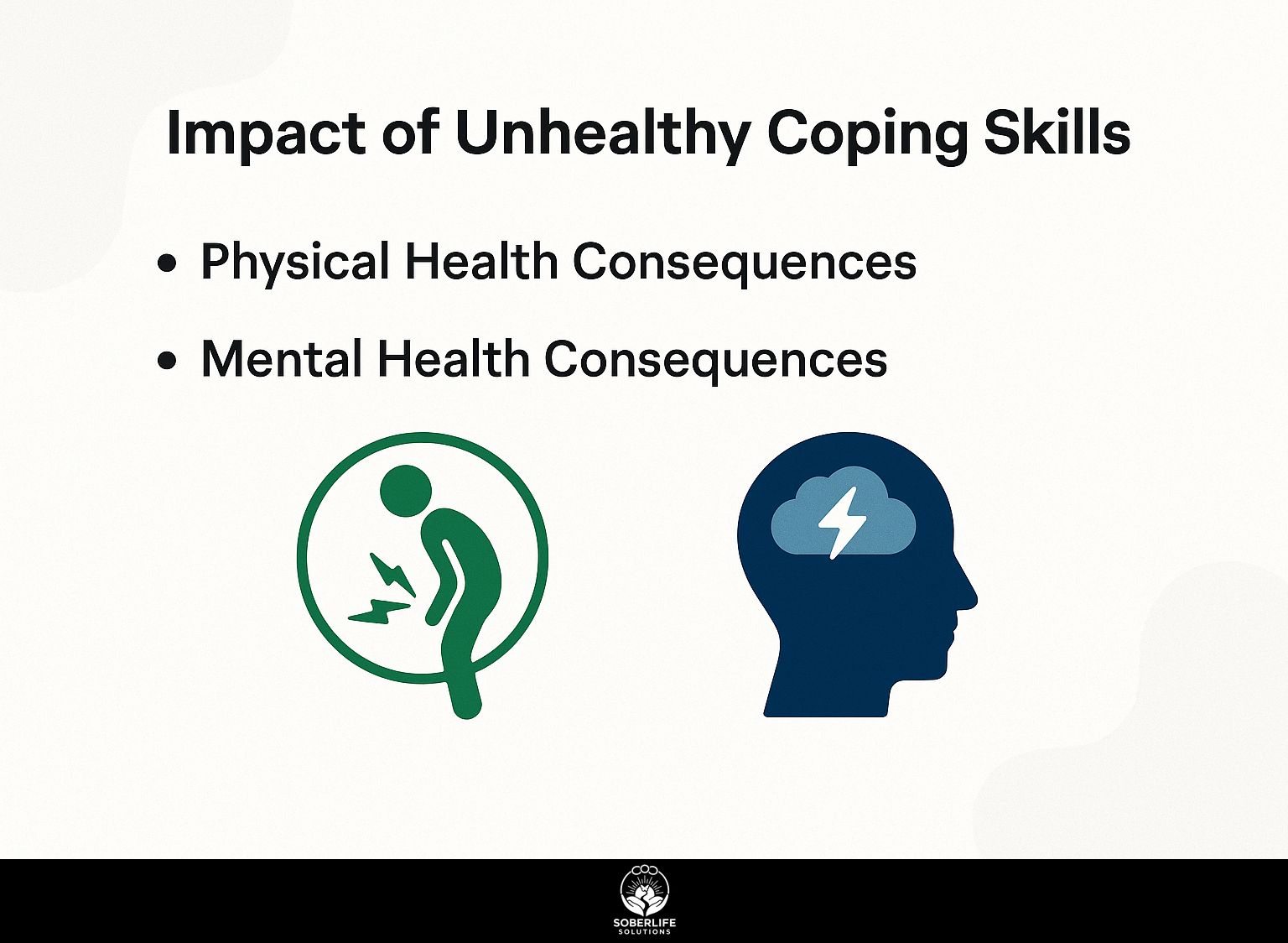
Unhealthy coping methods can seriously harm physical and mental health, causing a decline in a person’s overall well-being. These habits often intersect with significant issues during recovery, such as managing post-acute withdrawal syndrome (our guide to managing symptoms and strategies offers deeper insights).
Physical Health Consequences
Unhealthy coping skills like substance abuse and overeating can lead to significant physical health problems, including obesity, cardiovascular disease, and liver damage.
A staggering 40% of U.S. adults are classified as obese, often influenced by stress-induced binge eating or substance reliance.
Effective strategies to combat these issues include mindfulness practices, such as meditation and yoga, which help reduce stress and improve emotional regulation.
Support groups provide a community for sharing experiences and coping techniques.
For instance, utilizing apps like MyFitnessPal to track food intake can promote healthier eating habits. By engaging in regular physical activity, even just a 30-minute brisk walk, individuals can counteract stress responses and encourage weight management.
Mental Health Consequences
The effects on mental health from poor coping methods are just as concerning, often leading to higher levels of anxiety, depression, and emotional instability.
Research shows that over 50% of individuals who experience chronic stress may develop anxiety disorders (National Institute of Mental Health). Inadequate coping methods, such as substance abuse, avoidance, or excessive rumination, can exacerbate these conditions, leading to long-term emotional distress.
To combat this, individuals can adopt healthier strategies like mindfulness practices, cognitive behavioral techniques, and physical exercise. These strategies help reduce stress and support emotional strength, leading to a better mental state and lowering the chance of anxiety disorders.
Recognizing Unhealthy Coping Skills
Recognizing unhealthy coping skills involves self-reflection and awareness of one’s behaviors during stress and emotional upheaval.
To better identify these patterns, start by keeping a journal where you document your emotions and reactions when facing stress. For instance, you might notice that you often binge-watch television instead of addressing responsibilities.
Reflect on situations where you resorted to unhealthy eating habits or excessive screen time. Set aside a few minutes each day to review your entries and ask yourself questions like, “What triggered these responses?” and “How did I feel afterward?”
This process can help you understand your coping strategies and suggest better options.
Alternatives to Unhealthy Coping
Finding useful alternatives to unhealthy habits is important for better emotional health and becoming stronger against life’s difficulties. Implementing stress-reducing practices can significantly enhance emotional resilience, as seen in recovery techniques like mindfulness and meditation.
Healthy Stress Management Techniques
Using healthy ways to handle stress, like mindfulness and exercise, helps control emotions and build strength.
Five useful techniques can greatly improve how you manage stress.
- Start with deep breathing; dedicate five minutes daily to inhale deeply through your nose, hold for a few seconds, and exhale slowly through your mouth, repeating until calm.
- Next, journaling feelings for 15 minutes weekly helps process emotions by writing down thoughts and reflections.
- Including physical activity, like a 30-minute brisk walk three times a week, improves mood and lowers anxiety.
- Prioritize social connections by talking to friends once a week, sharing thoughts and support.
- Mindfulness meditation for ten minutes daily can center your thoughts and promote relaxation.
Developing Healthy Coping Strategies
Developing healthy coping strategies requires intentional practice and dedication, enabling individuals to effectively manage stress and emotional challenges.
Begin by setting specific, achievable goals such as ‘practice mindfulness for 10 minutes daily.’
Next, figure out what causes you stress or emotions that lead to bad habits. For instance, if traffic jams raise your anxiety, develop a plan to listen to calming music during commutes.
Create a support plan: involve friends or join a community group using platforms like Meetup. This approach aligns with the principles outlined in our analysis of effective strategies for building coping skills.
Using a habit tracker like Habitica can help you monitor your progress, ensuring you remain committed to your coping strategies.
Seeking Professional Help
Getting professional help from a therapist or joining a support group can give people the advice they need to improve their coping methods and strengthen their ability to deal with challenges. Interestingly, coping mechanisms play a vital role in addiction recovery, highlighting the importance of emotional health in overcoming obstacles.
To find a qualified therapist, start by visiting Psychology Today’s directory, which allows you to filter by location, specialty, and insurance. Look for therapists who focus on coping strategies and resilience training.
Before your first session, consider writing down specific issues you face and any existing coping mechanisms to discuss with your therapist. This preparation will help them tailor their approach to your needs.
Participating in therapy can help you develop better ways to handle stress and emotional difficulties.
Frequently Asked Questions
What are some examples of unhealthy coping skills in terms of management?
Examples of unhealthy coping skills in management include avoidance, procrastination, perfectionism, and overworking.
How does avoidance contribute to unhealthy management coping skills?
Avoidance is a coping mechanism that involves ignoring or pushing away tasks or responsibilities, which can lead to increased stress and poor time management skills.
What are the negative effects of procrastination on management skills?
Procrastination, or putting off tasks until the last minute, can result in incomplete or rushed work, causing stress and potential negative consequences for the individual’s overall productivity and performance.
How does perfectionism impact management coping skills?
Striving for perfection is a way to handle stress that can result in a continuous desire to control every detail. This can lead to a lot of stress and make managing time and making decisions more difficult.
What are the dangers of overworking as an unhealthy management coping skill?
Doing too much work, or frequently accepting more tasks than manageable, can cause exhaustion, higher stress levels, and poor balance between work and personal life, which negatively affects productivity and health.
What are some healthier alternatives to these unhealthy coping skills in management?
Some healthier choices are getting help and focusing on self-care, setting achievable goals and limits, and using good time and stress management methods.

